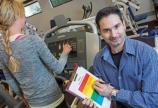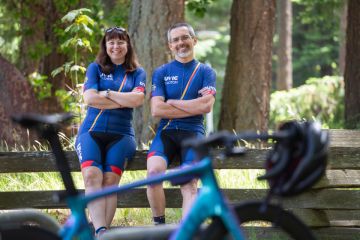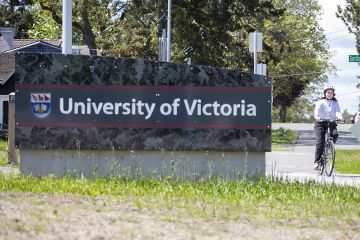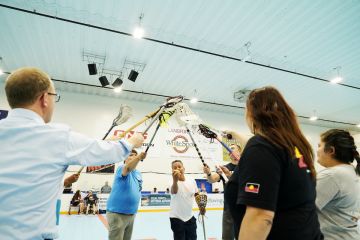Calling all couch potatoes
- Patty Pitts
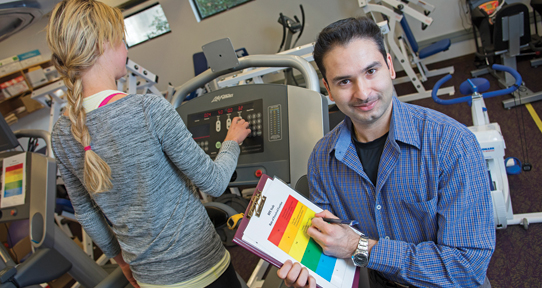
New Year's resolutions to exercise more are as predictable as post-holiday leftovers, bloated credit card statements and pine needles embedded in the carpet. But while the joint goal of getting fit and losing weight is generally the most popular of resolutions, it is also the one most commonly broken.
Why is it so difficult to integrate exercise into our daily routine and make it a habit?
"Habitual behaviours don't require conscious justification; you just do it," says University of Victoria PhD candidate Navin Kaushal who, based on previous research findings, believes he can turn struggling exercisers into habitual ones.
Kaushal defines habit as an automatic process triggered by environmental cues—such as a morning routine involving drinking a cup of coffee and brushing your teeth. "This is why the process of these behaviours is smooth and effortless."
But first Kaushal needs the help of 60 adults willing to test his theory by participating in an eight-week research project. "I've identified at least four key variables I believe are necessary to establish exercise habits," says Kaushal. "This will be one of the first projects to test their effectiveness."
To protect the integrity of his research project, Kaushal won't reveal the identity of the variables in advance of the study.
Kaushal began his academic career with an honours degree in psychology and health sciences from Western University before advancing to a master’s program in sports psychology at Newfoundland's Memorial University.
"I was initially interested in performance," says Kaushal, "but then I decided that I wanted to focus on something that had a greater impact on people." To accomplish that, he moved to the west coast to work under the supervision of Dr. Ryan Rhodes, a professor in exercise psychology at UVic and director of the Behavioural Medicine Lab.
Kaushal is looking for women and men, 18 to 65, who are currently not meeting the Canadian Physical Activity Guidelines of 150 minutes of moderate to vigorous exercise a week. They’ll be invited to attend an hour-long presentation, complete a worksheet to assist in identifying exercise goals, and choose their own exercises.
Participants will complete a short online survey every couple of weeks to track their results and progress.
As a lifelong active person who began a more formalized exercise regimen five years ago, Kaushal understands the difficulty in switching from a sedentary to an active lifestyle.
"It's a complicated process. You’re in a resting state, nice and cozy on the couch, and you need to change to an active state which might make you uncomfortable and force you outside."
The benefits of habitual activity are more than worth the effort, he notes. Studies show that regular physical activity helps reduce the risk of conditions such as cardiovascular disease, diabetes, cancer, hypertension, obesity, depression and osteoporosis, as well as premature death.
"I can't think of many other behaviours that can have that kind of impact," says Kaushal.
He wants the benefits of his research project to continue long after the eight weeks of participation have ended. "I'd like to empower these people with knowledge so they can take these tools and adapt them to their lives wherever they go."
Photos
In this story
Keywords: exercise, graduate research, exercise science
People: Navin Kaushal

